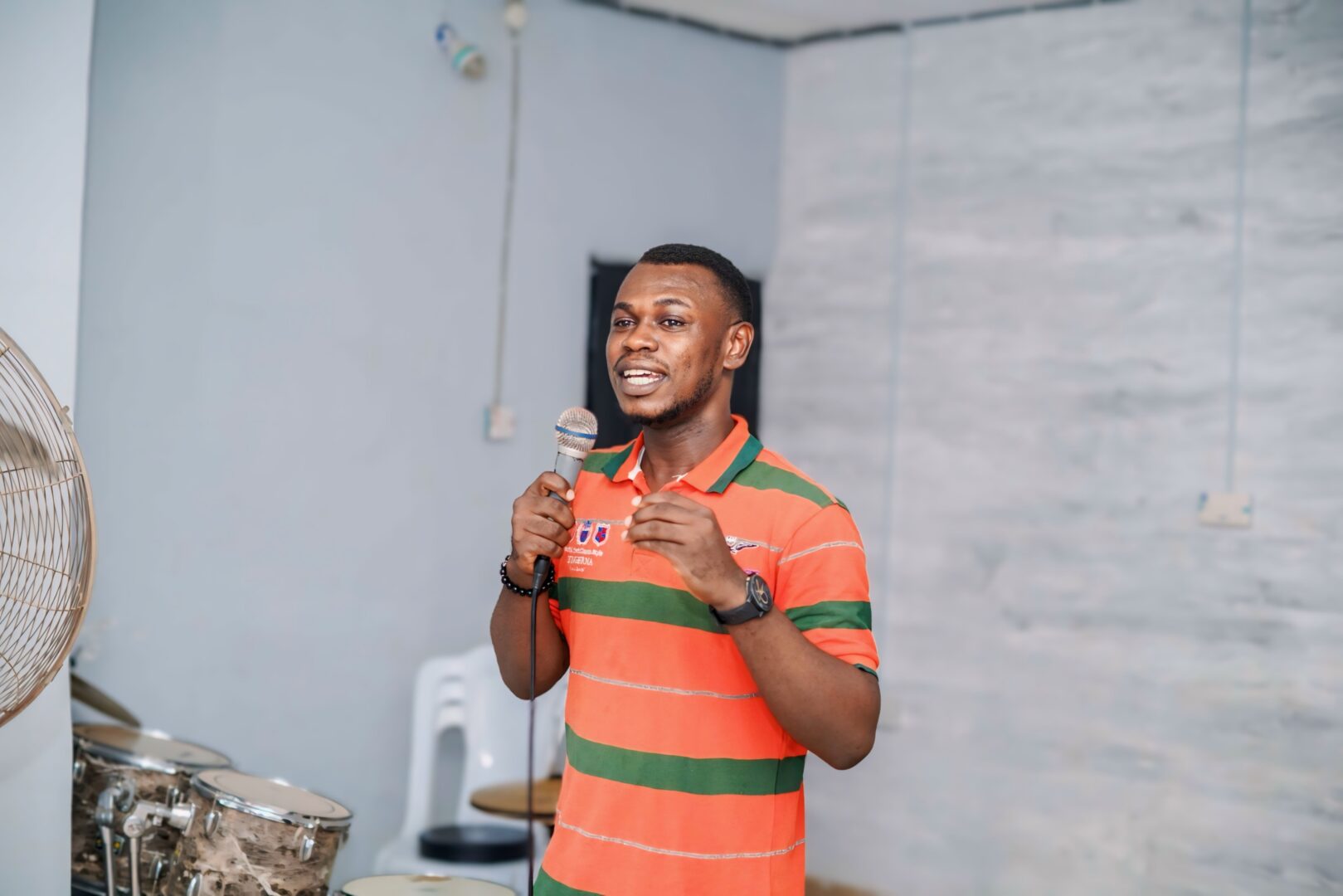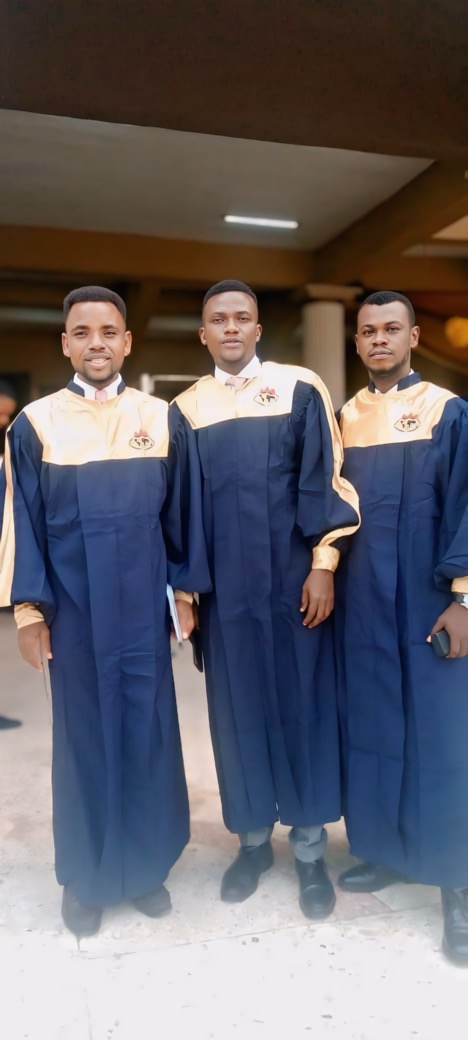We were lucky to catch up with Jeremiah Dighomanor recently and have shared our conversation below.
Jeremiah, so excited to have you with us today. So much we can chat about, but one of the questions we are most interested in is how you have managed to keep your creativity alive.
Many people see me as a perfect human being—someone who excels in people management, music delivery, and so many other things. But the truth is, that’s not the case in my private life. I fail countless times behind closed doors and only show the one time I succeed. Creativity is the ability to create something new from your activities. Often, it’s spontaneous, but it can also be developed into a habit. I spend a lot of time practicing in private, making thousands of mistakes. These mistakes help me achieve mastery over my skills and develop the ability to create something unique from my activities.
For example, I might spend 90% of my time listening to a song and only 10% learning it, or practice a five-minute piece for five hours. This rigorous practice builds up my hand muscles, which is invaluable when I improvise in music. I keep my creativity alive by constantly stocking my “creativity bank” with new content, and I do that through continuous learning and practice.


Let’s take a small detour – maybe you can share a bit about yourself before we dive back into some of the other questions we had for you?
My name is Jeremiah Dighomanor, and I was born into a musical family. My father was a DJ in his youth, my mother teaches her choir Ghanaian songs in church because she was born in Ghana, and my siblings are singers too. From a young age, I was exposed to various genres of music, but I was the first in my family to play a musical instrument. My parents initially thought I would become a drummer, but God had different plans for me with the keyboard.
Learning to play the piano required a great deal of determination because no one was willing to teach me. However, I persisted, went online to find resources, and taught myself, with a little help from those who noticed my seriousness and progress. You might think that once you learn to play the keyboard, you’ve reached the end of the journey, but that’s not true. The world is constantly changing, and staying relevant means continuously updating your knowledge.
To do this, I adopted a method I call “ruthless consistency,” a term I borrowed from my pastor, who believes that excellence comes from this very approach. To me, music is something that resonates with everyone. It’s a combination of sounds that pleases the ears, and everyone wants to hear something beautiful. Even those who are deaf can feel the vibrations of music, so they are not left out.
Over the years, I’ve taught music to both kids and adults, including keyboard, guitar, drums, and even choirs. I’ve also held seminars that many took for granted because they were free. But what keeps me going is my passion for music. Whether people take what I do seriously or not doesn’t affect me much because I get to do what gives me joy.
Now, I’m involved in music production and composition, and I have something big in the works. It’s a project aimed at bridging the gap between the older and younger generations—a team of musicians creating music that connects people from different generations, backgrounds, and cultures. Through it all, God has been my constant help.


Looking back, what do you think were the three qualities, skills, or areas of knowledge that were most impactful in your journey? What advice do you have for folks who are early in their journey in terms of how they can best develop or improve on these?
Love, faith, and hard work are three core values I’ve embraced in my life. My love knows no boundaries—I offer it equally to everyone. My faith in God has always grown stronger because, time and again, He has shown that He won’t and can’t fail me. Lastly, I believe in working hard. I often become so immersed in my work that I forget to eat and shut out all distractions—unless, of course, the task isn’t a serious one.
My advice to others is to start by building a foundation of faith in God. Then, cultivate love for everyone around you, and finally, be diligent in whatever you set your hands to do.


All the wisdom you’ve shared today is sincerely appreciated. Before we go, can you tell us about the main challenge you are currently facing?
Many people in my generation have resorted to emotional blackmail, using their emotions or creating tight situations to gain support from others. This behavior has made potential helpers hesitant to offer assistance, as they fear being deceived. As a result, those who genuinely need help and have the integrity to manage relationships are often overlooked unless they can prove their worth. Proving one’s worth is no small feat—it requires time, money, and strength.
In the past, it wasn’t this challenging. Today, young people must work hard to rise to the top and demonstrate their value to attract investors. I’ve encountered many young, overconfident individuals who claim they have talent but waste my time on trivial matters, asking me to accept mediocre standards. This attitude has made investors cautious when dealing with young creatives.
What I have resolved to do, and what I advise others to do, is to invest in themselves. Start by building from where you are with the resources available. I have trained myself to play any keyboard—whether cheap, expensive, faulty, or perfect—so well that you would enjoy it. This ability comes from years of working with subpar equipment and learning to produce the best outcome from any situation, whether it’s a choir that can’t sing, musicians who lack skill, faulty instruments, or poor sound quality.
Now, I’m focused on building my finances to a level where I can help those who genuinely need financial assistance. We can’t give what we don’t have. Having been a victim of needing financial help myself, I am well-positioned to identify those who truly need support.
Contact Info:
- Instagram: https://www.instagram.com/digho_jerry?igsh=amZoNmIwdDRudmNu&utm_source=qr
- Youtube: http://www.youtube.com/@iconiummusic
- Other: https://open.spotify.com/episode/7FjxUgYwkrGg6HfREGN5cX?si=xQybh-r_QBekYlryhJuHUw


so if you or someone you know deserves recognition please let us know here.




